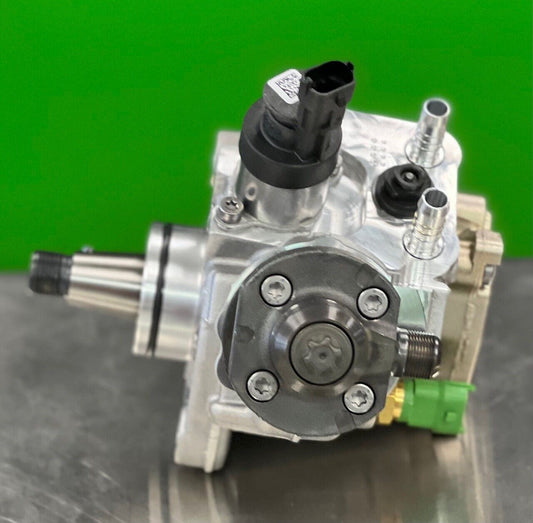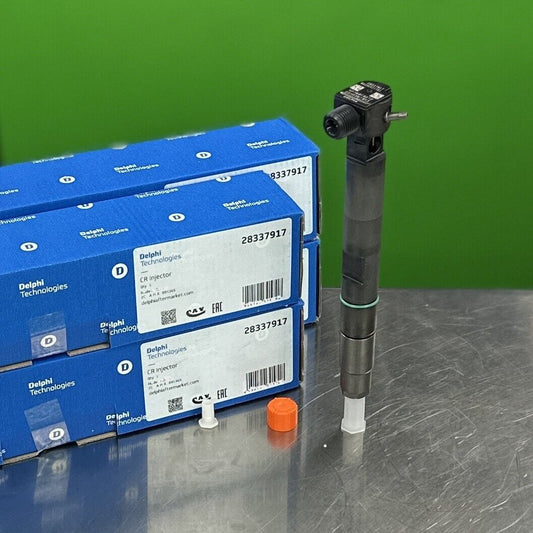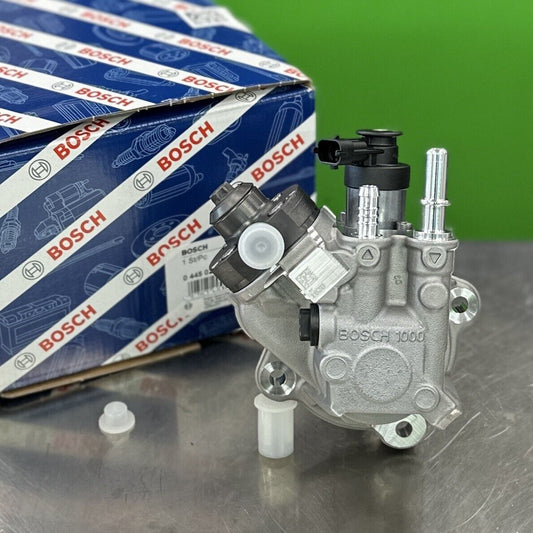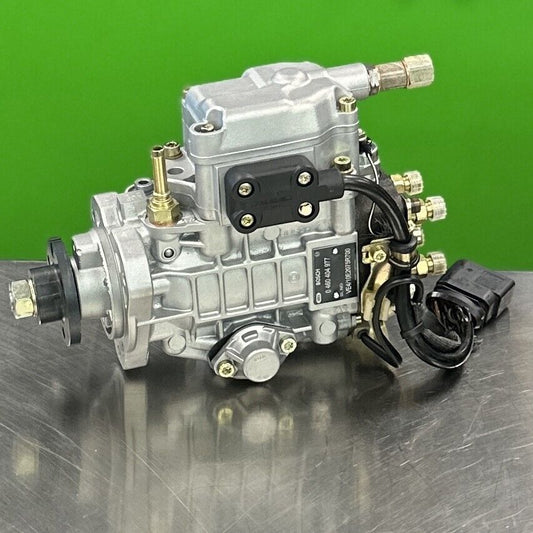Fuel Injector Diagnostics: A Step-by-Step Guide
Fuel injectors are crucial components in a vehicle's engine system, responsible for delivering the right amount of fuel to the combustion chamber for efficient operation. When these injectors malfunction, it can lead to a variety of performance issues and potential damage to the engine. In this comprehensive guide, we will walk you through the step-by-step process of diagnosing fuel injector problems, equipping you with the knowledge and tools needed to tackle these issues effectively.
Understanding Fuel Injectors
Understanding Fuel Injectors is crucial for anyone dealing with vehicle maintenance. Think of fuel injectors as tiny but mighty devices responsible for delivering the right amount of fuel to the engine for combustion. Just like a skilled chef carefully measuring ingredients for a perfect dish, fuel injectors ensure the engine receives the precise fuel it needs to operate smoothly.
Imagine your car's engine as a complex orchestra, with each component playing a vital role in harmony. Fuel injectors act as the conductors, controlling the fuel flow to each cylinder with precision timing. They spray fuel into the combustion chamber at high pressure, mixing it with air to create the explosive power needed to drive the vehicle forward.
Without properly functioning fuel injectors, your engine's performance can suffer. It's like trying to run a marathon with a pebble in your shoe – you'll feel the drag and struggle to reach your full potential. Understanding how fuel injectors work and their significance in the engine system can help you diagnose issues promptly and keep your vehicle running smoothly.
When fuel injectors become clogged or malfunction, they can disrupt the delicate balance of fuel and air mixture needed for efficient combustion. This disruption can lead to a range of problems, from sluggish acceleration to engine stalling. By recognizing the importance of fuel injectors, you can stay ahead of potential issues and address them before they escalate.
To put it simply, fuel injectors are the unsung heroes of your vehicle's performance. They work tirelessly behind the scenes, ensuring your engine runs smoothly and efficiently. Understanding their function and role in the combustion process empowers you to take proactive measures in maintaining and troubleshooting your vehicle's fuel system.
Common Symptoms of Fuel Injector Problems
When it comes to diagnosing fuel injector issues in vehicles, recognizing the common symptoms is crucial. These signs can indicate underlying problems that need immediate attention. Let's delve into the telltale signs that your fuel injectors might be causing trouble:
- Engine Misfires: One of the most noticeable symptoms of a faulty fuel injector is engine misfires. If you experience sudden jerks or hesitation while accelerating, it could be due to a misfiring injector disrupting the combustion process.
- Rough Idling: A rough or unstable idle is another red flag for potential fuel injector problems. If your engine struggles to maintain a steady RPM at idle, it might be a sign of clogged or leaking injectors affecting fuel delivery.
- Poor Acceleration: Difficulty in accelerating smoothly or a lack of power when pressing the gas pedal can also point towards fuel injector issues. Inefficient fuel injectors can lead to inadequate fuel supply, impacting the engine's performance.
- Increased Fuel Consumption: Have you noticed a sudden spike in fuel consumption without any apparent reason? Faulty fuel injectors can cause the engine to run rich or lean, resulting in excessive fuel usage and decreased fuel efficiency.
These symptoms can vary in severity, and it's essential to address them promptly to prevent further damage to your vehicle's engine. By being vigilant and recognizing these common signs of fuel injector problems, you can take proactive steps to diagnose and resolve issues before they escalate.
Diagnostic Tools and Techniques
When it comes to diagnosing fuel injector issues, having the right tools and techniques is crucial. Let's dive into the world of diagnostic tools and methods used by experts to pinpoint problems with fuel injectors. From fuel pressure testing to visual inspections, these techniques are essential in ensuring your vehicle's fuel system is in top condition.
One of the primary diagnostic tools used for assessing fuel injector performance is fuel pressure testing. This method involves measuring the pressure of fuel delivered to the injectors to determine if it falls within the manufacturer's specified range. By analyzing the fuel pressure, mechanics can identify issues such as clogged injectors or fuel delivery problems.
Another key technique in diagnosing fuel injector problems is injector balance testing. This process involves evaluating the performance of each injector to ensure they are delivering fuel evenly. Imbalances in injector performance can lead to engine misfires and poor fuel efficiency. By conducting balance testing, mechanics can identify and address any discrepancies in fuel delivery.
Visual inspection is also a vital tool in diagnosing fuel injector issues. By visually examining the injectors and their surrounding components, mechanics can identify signs of wear, leaks, or blockages. Visual cues such as corrosion, cracks, or fuel leaks can indicate underlying problems that require immediate attention.
Interpreting diagnostic results effectively is key to accurately identifying fuel injector problems. Mechanics rely on their expertise and the data gathered from diagnostic tools to make informed decisions regarding repairs or replacements. By understanding the significance of diagnostic findings, technicians can provide targeted solutions to address fuel injector issues.
Remember, proper diagnosis is the first step towards resolving fuel injector problems efficiently. By utilizing these diagnostic tools and techniques, you can ensure that your vehicle's fuel system operates smoothly and efficiently. Stay proactive in maintaining your fuel injectors to prevent unexpected surprises on the road.
Repair and Maintenance Tips
When it comes to repairing and maintaining fuel injectors, there are several key tips to keep in mind for optimal performance of your vehicle. Proper care and attention to your fuel injectors can significantly impact the efficiency and longevity of your engine. Let's delve into some expert advice on how to handle repair and maintenance tasks effectively.
First and foremost, regular inspection and cleaning of fuel injectors are essential to prevent clogs and ensure smooth fuel flow. Buildup of dirt and debris can lead to injector blockages, affecting fuel delivery and engine performance. Consider using specialized injector cleaning solutions to maintain optimal functionality.
Additionally, monitoring fuel quality and using high-quality fuel can contribute to the longevity of your fuel injectors. Poor-quality fuel with contaminants can lead to injector issues and impact engine efficiency. Invest in reputable fuel brands and consider using fuel additives to keep injectors clean.
Furthermore, staying proactive with preventive maintenance is key to avoiding major injector problems. Follow the manufacturer's recommended maintenance schedule for your vehicle, including regular tune-ups and fuel system inspections. Addressing minor issues promptly can prevent larger, more costly problems down the road.
When it comes to replacing fuel injectors, it's crucial to use quality, OEM-compatible parts to ensure proper fit and function. Consult with a professional mechanic or refer to your vehicle's manual for guidance on selecting the right injectors for your car. Proper installation is essential to prevent leaks and ensure optimal performance.
Moreover, consider investing in a fuel injector cleaning kit for DIY maintenance tasks. These kits typically include cleaning solutions and tools for thorough injector cleaning. Regularly using these kits can help prevent buildup and maintain injector efficiency.
Lastly, pay attention to the overall health of your vehicle's fuel system, including fuel filters and fuel lines. A well-maintained fuel system is crucial for the proper functioning of fuel injectors. Replace fuel filters as recommended and inspect fuel lines for any signs of damage or leaks.
By following these repair and maintenance tips, you can ensure that your fuel injectors operate efficiently and contribute to the overall performance of your vehicle. Remember, proper care and attention to your fuel system can go a long way in preventing costly repairs and keeping your engine running smoothly.
```htmlFrequently Asked Questions
-
What are the common symptoms of fuel injector problems?
Common symptoms of fuel injector issues include engine misfires, rough idling, poor acceleration, and increased fuel consumption. These signs indicate potential problems with fuel delivery and combustion in the engine.
-
How do fuel injectors work in a vehicle?
Fuel injectors are responsible for delivering the precise amount of fuel into the engine cylinders at the right time. They atomize the fuel into a fine mist, allowing for efficient combustion and optimal engine performance.
-
What diagnostic tools are used to identify fuel injector problems?
Diagnostic tools such as fuel pressure testers, injector balance testers, and visual inspection equipment are commonly used to diagnose fuel injector issues. These tools help in pinpointing the root cause of injector malfunctions.
-
How can I maintain my fuel injectors for optimal performance?
To ensure the longevity and efficiency of fuel injectors, regular maintenance is essential. This includes using high-quality fuel, keeping the injectors clean, and following manufacturer-recommended service intervals for inspection and cleaning.



